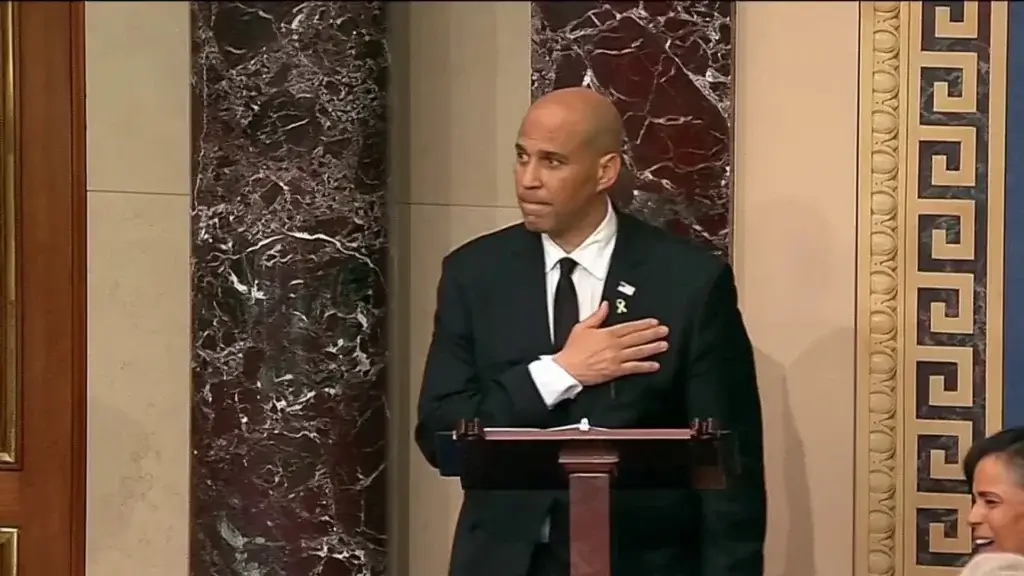Senator Cory Booker’s recent endorsement of New York Assemblyman Zohran Mamdani has reignited discussions on the evolving ideological lines in American politics. But instead of framing it as a battle between progressives and conservatives, Booker introduced a much sharper distinction: “This is not a left-right issue.
It really isn’t. It is an authoritarian versus people who want pragmatic government that makes a difference in the lives of American people.”
This framing is significant. It reflects a broader national conversation where traditional political labels are becoming less relevant. Mamdani, a democratic socialist, has been known for his outspoken views on housing rights, public safety reforms, and foreign policy. His approach is often seen as disruptive by establishment figures — yet Booker’s defense positions him not as radical, but as part of a “pragmatic movement” seeking real, tangible change.
Senator Cory Booker emphasis on ‘pragmatic governance’ reframes the debate from ideology to function. In other words, it’s not about being progressive or centrist — it’s about who’s willing to challenge systems that perpetuate inequality, corruption, or authoritarian control. By aligning himself with Mamdani, Booker distances himself from those in power who use bureaucracy or fear to suppress reform.
Zohran Mamdani has faced criticism not just from conservatives but also from moderate Democrats. But Senator Cory Booker’s support signals growing frustration among national Democrats with political stagnation. It also suggests that what was once called “the far left” is now being normalized as a necessary counterforce to regressive governance.
This moment is about more than Mamdani’s political future. It’s a statement on what kind of democracy America wants — one that operates through fear and control, or one that invites bold, grounded ideas to the table.



